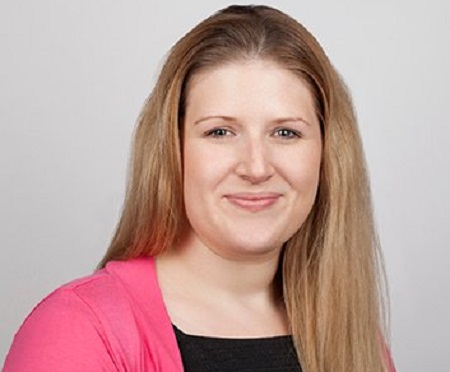Professional Paraplanner editor Rob Kingsbury spoke to Joanna Hague, paraplanner with Doncaster-based Investment for Life about her passion for financial planning and Twitter.
After six years as a civil servant working in Her Majesty’s Prison Service, Jo Hague, Accredited Paraplanner at Investment for Life, felt it was time to break out.
She had fallen into the prison service job rather than chosen it and, although she had been rapidly promoted – at just 23 she was executive officer in charge of IT for one of the largest prisons in Europe – she says, “I knew that if I stayed in the prison service, while it would have been a career for life with all the benefits of being a civil servant, it would have meant walking down a dark corridor doing the same job every day.”
In contrast, her decision to move into financial planning was a conscious one based on having been brought up around financial planning. “I wanted to do something in my career, to achieve something and financial planning is very different to many jobs, we help people achieve what they want to do with their lives and that can be very rewarding,” she says.
She joined the family firm five years ago. It should be stressed this is not a mum, dad and daughter operation. The firm is highly professional and throughout our conversation Jo refers to Mike Hague as the financial planner and Judith Hague as her fellow paraplanner and office manager, and to both as colleagues.
She was mentored into financial planning by Mike, the principal of Investment for Life and a Fellow of the IFP, and she started studying for her first CII exams while still working in the prison service. “And it turned out I could do it,” she says. Now she holds both Certified Financial Planner and Chartered Financial Planner status and is a few credits off becoming a Fellow of the Personal Finance Society.
Initially, her intention was to become a financial planner, with the aim of becoming a Certified Financial Planner with the Institute of Financial Planning but when the opportunity to become the paraplanner for Investment for Life arose, she took it.
Now she doesn’t see herself moving out of paraplanning unless, she says, “some way down the line I could develop a hybrid role between advising and paraplanning, so that I could deal with some general points for clients, leaving the overall control of the financial planning to the planner, so he can focus on the bigger issues with the client. I couldn’t see myself wanting to give up the technical part of the paraplanning job because that’s the bit I love,” she says.
Day-to-day job
Investment for Life serves around 80 clients and is intensely focussed on ensuring that all the clients know every member of the team, not just the financial planner. “Our aim is to ensure we’re all known to all our clients, and they to us, so that when they ring in they always know who they are dealing with,” Jo says.
Hence Jo will attend many client meetings. Before the meeting she’ll analyse the information received from the client for review and prepare some initial reports and pass those to the planner. “He will send out a commentary to the client and then we will both go and meet with the client. Afterwards I will write up the meeting and any recommendations before they go to the planner for sign off,” Jo explains.
Asked to describe a typical day, she concludes there isn’t one – and suspects most paraplanners would say the same. However, her day will normally begin by checking her task list, which is held on the firm’s CRM system, Microsoft Dynamics. “It’s a matter of prioritising every day, depending on what arises. We use a mixture of the tasks flagged by the CRM system along with case conferences between the three of us in which we’ll talk about the clients or a particular position. And then some days the phone will ring all day and you’ve just got to deal with it,” she says.
“As a paraplanner you have to be adaptable, particularly if you are working for a small firm,” she adds. “Every paraplanner’s job is going to be different because it’s about bringing value to your firm and delivering what your firm needs. Paraplanners need to be chameleons to some degree, and play to their strengths.”
Jo may attend two-to-three client meetings a week and that will lead to roughly a third of the week being taken up by report writing. “It’s hard to quantify because we’ll only make recommendations if the client needs them. I keep a register of all the recommendations we make and some months we might have made 30 and another month seven or eight.”
Being a small firm means it has to pace the rate at which it takes on new clients. “We always ensure we have capacity to take on family members or referrals from existing clients,” Jo says. “We’ve recently taken on some new clients so for a while we won’t be looking for any more in the very near future.”
Working in a small firm also means Jo’s workload isn’t confined just to paraplanning. “There are some jobs that might be classed as administration in other firms that I have to get involved in because there are only three of us. It’s not about what’s administration and what’s paraplanning, we’ll all cover a range of roles to ensure everything gets done,” she says. “It’s about doing the job for the client. If a form needs completing it’s not going to get left just because the administrator isn’t in that day.”
Page: 1 2





























